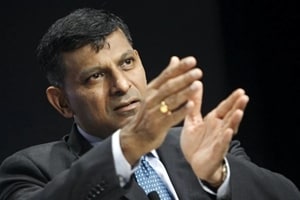In my last column (goo.gl/ddoI9r), I highlighted how those of Indian origin in Silicon Valley have created a pan-Indian network of innovators and entrepreneurs (The Indus Entrepreneurs, or TiE) that has had global influence, with measurable benefits for India as a nation and as an economy. Meanwhile, there was an attack on the current Governor of the Reserve Bank of India (RBI), who is an Indian citizen but also has permanent resident status in the United States—the fabled “green card.” This was viewed as an indicator of being “mentally not fully Indian.” Now, one can interpret this criticism in different ways, and one can have legitimate debates about the conduct of economic policy, the choices made and implicit and explicit trade-offs that have to be considered and that result from those policy choices. Monetary management is particularly thorny, and a matter of contention even in advanced economies with better institutional frameworks. The aftermath of the financial crisis and Great Recession has been particularly difficult for central bankers, who have taken a lot of heat.
Putting aside the specific arena of policy action, it is interesting to examine the broader underlying premises of the attack. I would still argue that TiE and its Silicon Valley members have had a significant positive impact on India, whatever their citizenship or residency status. They have served as role models, and they have been investors in and donors to India. But one of their main contributions has been to bring in fresh ideas and perspectives, gained through their international experiences, to the Indian economy. In this respect, perhaps they are better for India than the business tycoons who have always maintained residence in India (except for jaunts abroad), but have no problem siphoning off money from their firms and investors, or exploiting their workers, or fostering corruption. Rather than pursue this line of comparison, however, it is useful to look at data on specific, measurable impacts.
Consider a recent academic paper by Prithwiraj Choudhury, a young academic at the Harvard Business School. Interestingly, he was also educated at an IIT and an IIM, like the current RBI Governor. He has also worked for several multinationals. And I presume, given his employment status, that he has at least US permanent residency status. But whether or not he is mentally fully Indian is irrelevant to his research, I think. The paper I want to highlight uses data from a Fortune 500 multinational firm, operating in India. The data pertains to about 1,300 employees, of whom 8% are “return migrants,” ethnic Indians with some time spent at the company’s US headquarters. There was no information on citizenship status or future plans, so one cannot say whether these returnees were permanent or not.
The careful data analysis reveals several important findings. First, return migrants had higher prior patent grants and filed more patents compared with local hires, though this result was driven by return migrants with longer tenures in the firm, i.e., by greater experience. Second, local employees who had return migrants as their managers filed patents at more than double the rate of those with local managers, and this did not seem to be the result of local employees piggy-backing on returnee managers’ innovations. Third, the pattern of backward patent citation rates suggested that the return managers acted as a knowledge bridge, for transferring technical knowledge from the headquarters to local employees.
There is much more detail in the paper itself, but the validation of the concept of knowledge bridges is a powerful one. There are other studies that have similar broad conclusions. The paper does not tell us whether one would have observed the same result with managers who were ethnically foreign. That would be a complicated additional comparison. But for present purposes, it is enough to note that at least in this specific case, there are measurable benefits that return migrants bring to India, whatever their permanent resident status or how mentally Indian they are.
But we already knew this. Nehru, Gandhi and Ambedkar all brought ideas from their experiences abroad back to India, to the benefit of the nation. Some ethnic non-Indians also contributed to India’s freedom movement, and to its economic development. In many cases, the issue of keeping one foot in another country—a major part of the attack on the RBI Governor—did not arise in that world of costlier and slower travel, but many technical experts throughout India’s existence as an independent nation have moved back and forth between locations, without being questioned as to their Indianness. And the structure of the modern global economy has only increased that flexibility. Nor has the leader of India’s government been reticent about connecting with and courting the Indian diaspora, who are more and more in positions where they can contribute significantly to the nation’s development. Narrow nationalism in this respect, much like the domestic tests of patriotism consisting of willingness to shout certain slogans, can only harm India going forward.
The author is professor of economics, University of California, Santa Cruz


